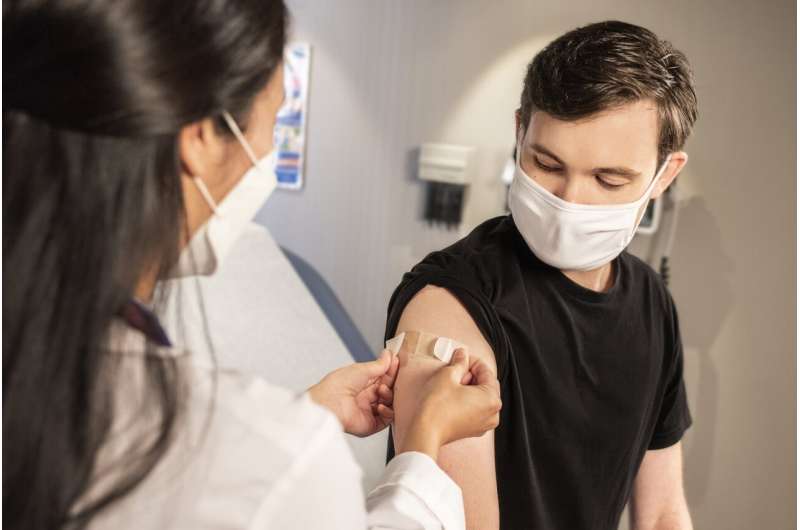New study into COVID-19 vaccine uptake, efficacy in vulnerable populations


British Columbia is in the midst of two public health emergencies. While the COVID-19 vaccine rollout continues across the province and country, fatal drug poisonings have been on the rise.
Researchers with UBC and the BC Centre on Substance Use (BCCSU)—in partnership with the BC Centre for Disease Control and Vancouver Coastal Health—want to know how these dual health emergencies are being experienced. They have launched a new study to investigate the uptake, effectiveness, and safety of COVID-19 vaccines among members of vulnerable urban populations, including people who use unregulated drugs.
We asked study co-leads Dr. Brittany Barker, postdoctoral fellow with UBC’s department of medicine and research scientist at BCCSU, and Dr. Hudson Reddon, postdoctoral research fellow with UBC’s department of medicine, how COVID-19 and vaccinations are being experienced by vulnerable populations.
Why are vulnerable or marginalized people at greater risk of COVID-19 infection?
Hudson Reddon: People in these populations often live with multiple risk factors for acquiring the novel coronavirus and developing serious cases of COVID-19. These risk factors include homelessness and poverty, living in congregate settings such as social housing or prisons, high-intensity drug use and associated infectious diseases like HIV, as well as structural vulnerabilities like stigma, discrimination and criminalization. Separately or combined, these can amplify the risk of infection.
Why might people in these populations be hesitant to receive a COVID-19 vaccination?
Brittany Barker: There are many reasons why someone may not be willing or easily able to get vaccinated. People experiencing homelessness or poverty may simply not have a computer, phone or transportation, or may be unaware of where or how to book a vaccine appointment. Further, the lived reality may make it difficult for folks to engage with or trust healthcare and government officials about the pandemic or vaccines. Many have experienced stigmatizing, poor and even harmful treatment within the healthcare system, contributing to misinformation and an unwillingness to get vaccinated. For example, Indigenous people were subject to government-sanctioned medical experiments in Indian hospitals and residential schools and, as was recently documented in the provincial In Plain Sight report, continue to experience racism and discrimination in the B.C. healthcare system. These harms are compounded for those who use drugs, so it shouldn’t be a surprise that many may be reluctant to get vaccinated.
We’ve seen an escalated public health response to COVID-19. How has that impacted people who use drugs?
Hudson Reddon: Since the pandemic was declared last March, we’ve seen an increase—both in B.C. and across the country—in the number of fatal drug poisonings. In 2020 alone there were more than 6,200 toxic drug deaths in Canada, meaning nearly 17 Canadians are dying every day as a result of the toxic unregulated drug supply. This is a trend we’re seeing in provinces across the country, where physical distancing and quarantine regulations have increased the barriers to harm-reduction services and addiction treatments such as opioid agonist therapies (e.g., methadone).
Brittany Barker: We’re seeing an increasingly toxic and dangerous drug supply, likely due to disrupted supply chains feeding the unregulated market. People are also experiencing isolation, stress and grief, all of which can lead to increased substance use, using alone and barriers to accessing care. Combined with the limited availability or accessibility of services during COVID-19 lockdowns, it’s easy to see how people who use drugs are more impacted by COVID-19 than other groups.
Do we know whether substance use has an impact on vaccine efficacy?
Source: Read Full Article